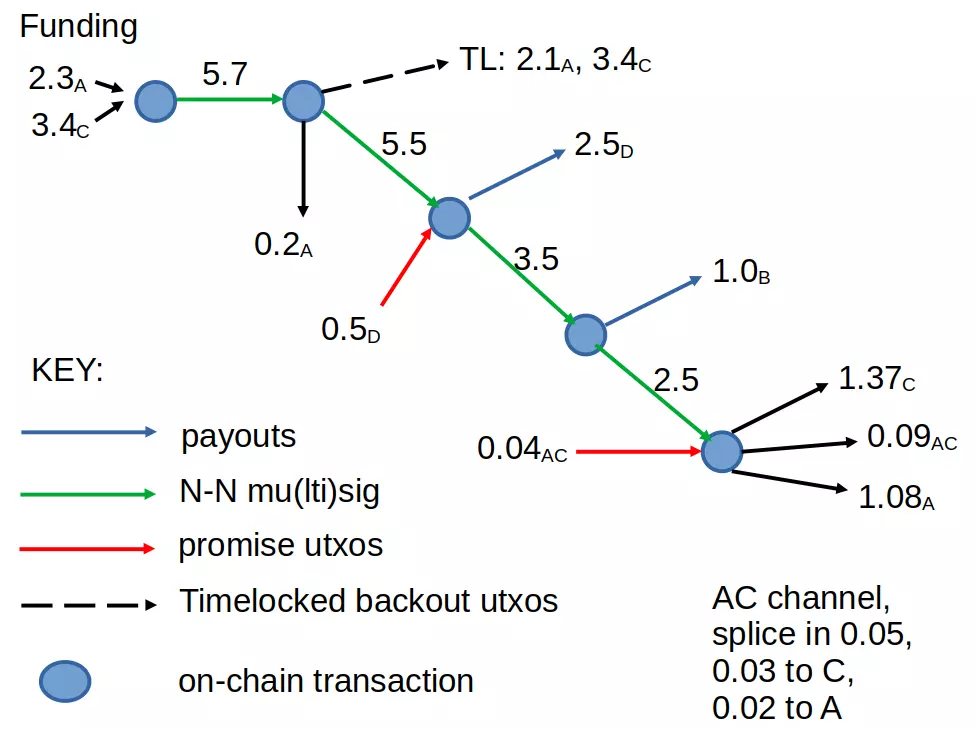waxwing on Nostr: You can now run an autct server by just downloading the binary here: ...
You can now run an autct server by just downloading the binary here: https://github.com/AdamISZ/aut-ct/releases/latest and running it with `./autct -M serve -k mycontext:mykesetfile` (or use an example keyset file shown in the worked example), then make RPC calls from Python with no crypto code (just do `pip install autctapi` ... though you'll want to look at the github repo for the example.py script), to prove that your taproot utxo is in the utxo set. The proving takes 5-15 seconds for keysets up to a couple hundred thousand keys, while the verifying is basically instant.
If you did want to use mainnet keys, you can get a daily-updated set of taproot keys from https://hodlboard.org/keysets. This is filtered to be only keys for utxos > 500k sats, and so it's small, about 17MB. You can demonstrate that it works "for real" by funding such a utxo and then trying the prove and verify operations the next day. It's fiddly mainly because most wallets don't support taproot, and those that do don't let you copy the private key. See https://hodlboard.org/proofs for how to get around that.
(Better to generate the keysets yourself of course, but it takes some time to figure that out, detailed instructions in first repo mentioned)
If you did want to use mainnet keys, you can get a daily-updated set of taproot keys from https://hodlboard.org/keysets. This is filtered to be only keys for utxos > 500k sats, and so it's small, about 17MB. You can demonstrate that it works "for real" by funding such a utxo and then trying the prove and verify operations the next day. It's fiddly mainly because most wallets don't support taproot, and those that do don't let you copy the private key. See https://hodlboard.org/proofs for how to get around that.
(Better to generate the keysets yourself of course, but it takes some time to figure that out, detailed instructions in first repo mentioned)
